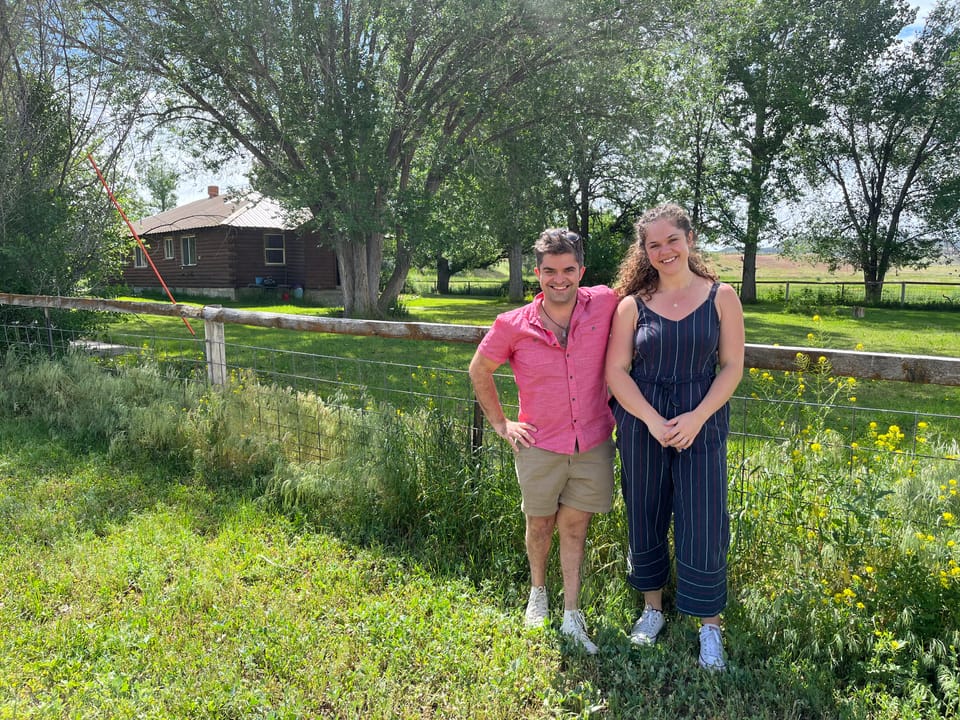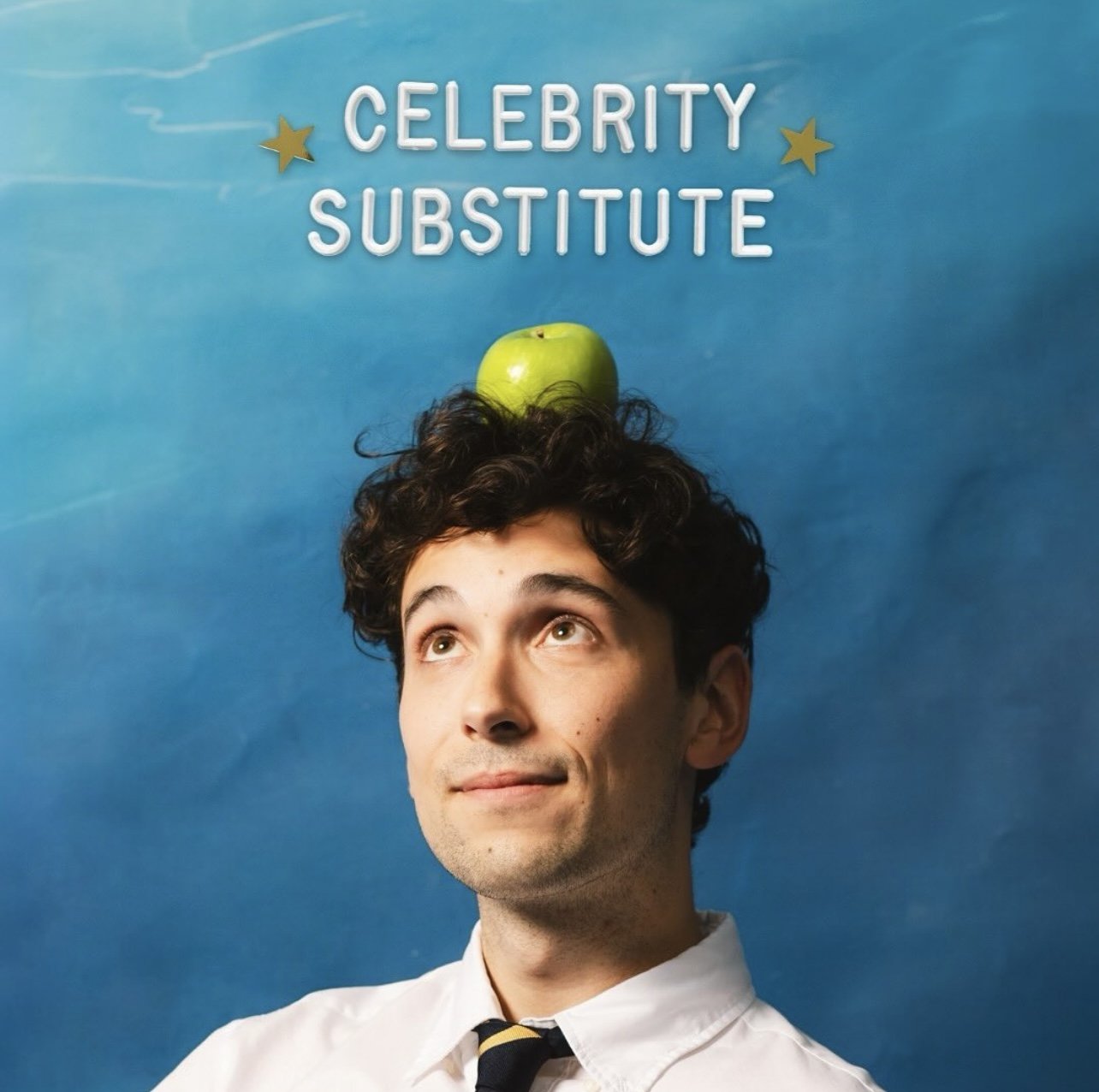What is a producer? My sister knows.

Elli Legerski, the one and only, is my sister. Only 21 months separate us in age. We grew up together across three states. Today, she is a producer in Los Angeles. I primarily make podcasts remotely, living, currently, in Alabama. She works in film, commercials, tv shows, photography shoots. She is fabulous and wonderful.
Many people don't really understand what she does, and I didn't for a while either. So, I wanted to share a Q&A about her job.
I also find it funny that somehow we do something similar. I produce podcasts, after a zig-zagging career in non-profit and educational jobs. Elli produces films and shows. My title at work doesn't suggest it (researcher & fact-checker) but I very much help with the production of podcasts within a media company.
Somehow two kids from rural Wyoming ended making stuff for a living. See more at her website:

Tucker: What is a producer?
Elli: What do you do for a typical job?No matter how many times I get this question, I still have to pause and think. What is a producer? Anyone's guess. "Producer" is such a wiiiiiiiiiiiide umbrella of a job, and there are so many different types of producers.
Some sit at a desk and write checks, some (if not most) offer half-baked criticisms of scripts and edits to make creators second-guess everything they've done, and some are on set mitigating every crisis imaginable in real time during physical production (your lead actor is 45 minutes late for that sunrise shot that the whole crew assembled at 3 AM to make happen for them....the studio wants to pull financing today unless you, girl with a laptop, can cut out a third of your budget even though the whole company is 14 days into production....your PA just crashed the equipment truck and of course the insurance you paid $40k for won't cover the damages....Oh, is that hellacious neighbor screaming at one of my crew members for stepping on the corner of her lawn even though we paid her handsomely to rent her driveway for equipment staging?).
I consider myself to be the last kind of producer. Every day is different, just like every project is different. For everything I work on, there is a whole new menagerie of people, places, and things to figure out to best fit the creative vision. And it all must be done on budget, on schedule, safely, and with good morale :)
TL: How did you get interested in producing?
EL: I initially went to film school because I wanted to be a writer and an actor. It wasn't until I first stepped on a film set (after graduating film school, by the way), that I realized that the actor and writer often actually have the least amount of say on a physical production.
It looked, dare I say...boring as fuck to be sitting at a monitor or on the side in the chair most of the day. I don't do well sitting around waiting for people to say they're ready for me/my input.
I started making "backyard movies" with my friends in 2012, and I naturally found myself good at the logistics of it all: Who are we hiring? Who are we casting? Where are we filming? What will everyone eat every day? What paperwork do we need? I've also always been a very organized, communicative person, so it all just started making more sense that I actually needed to go for it and be a producer.
TL: What's something most people don't know about producing?
EL: No matter what people say, there is no "norm." No set of schooling or books to read or trajectories to follow. I truly believe you have to just have a good natural instinct/intuition.
One of my very earliest mentors told me that on her first day of her first production ever, one of her trucks accidentally backed into and broke a fire hydrant, causing irreparable damage to their location and most of their equipment due to the deluge/flooding of water. She said every day on set is like an emergency room– you never know what you're gonna get, and even if you had all the "preparedness training" in the world, there's still a very strong chance you're gonna deal with something you've never seen before or since.
And while that is an extremely dramatic explanation, I find it to be very true. Sometimes even the best-laid plans end in circumstances you literally never expected, so you have to be able to make decisions quickly, safely, and on behalf of your entire cast and crew. There is often no time to hem and haw and think about all the hypotheticals: the show must go on, baby.
TL: What is something you're learning right now to help you at your job? Or something you'd like to learn more about?
EL: I am constantly in awe of my fellow producers who are so eloquent with their words. I absorb as much as I can from my fellow producers who talk a good game without sounding like weird or awful scumbags, because I am always wanting to be better at that. Whether in negotiations, pitching a project, or just navigating the personal politics of our industry (of which there are many!!!!!!!)– it's good to know how to shape a conversation in your favor!
And I'm also honing my craft of asking for more. One producer I recently worked with said his father always taught him, "You're never gonna G-E-T unless you A-S-K" and that has really stuck with me.
There is a fine balance between getting what you want or need versus over-extending and breaking a deal, but for many years I didn't ask for more than what was offered to me, so I am having fun breaking past that, and having more confidence as my career progresses.
TL: Do you have any resources or places to learn more about being a producer or learning about it?
EL: (This can be anything from social media, books, experiences, podcasts, etc.)I think just getting out there and meeting fellow producers and making your own projects is gonna be a better resource than any book, podcast, or social media account. Though I will say I highly recommend @anonymousproducer on Instagram for some very niche film/commercial-production humor.



Member discussion